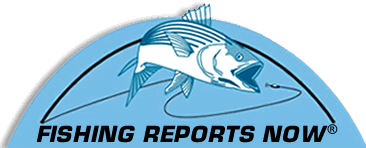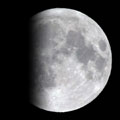| July 18, 2018
Mr. Luke Feinberg Bureau of Ocean Energy Management
Office of Renewable Energy Projects
45600 Woodland Road
Sterling, Virginia 20166
Dear Mr. Feinberg:
Please accept this letter as public comment pertaining to leasing of areas of the Outer Continental Shelf for development of offshore wind energy off the coast of New Jersey.
I write today as the President of the Jersey Coast Anglers Association (JCAA). JCAA represents 75 affiliated fishing clubs with several thousand recreational anglers as members.
JCAA supports the responsible development of offshore wind farms as it will create new fishing opportunities for our members. We support: access to offshore turbine pylons and foundations (being able to fish close to them); public input and angler engagement early in the planning process; and the development of science, meaning fisheries and habitat research before, during and after wind turbine construction.
Ocean wind power is a great opportunity for Americans and fishermen - a view shared by Secretary of the Interior Ryan Zinke who sees it as part of the Trump Administration's "energy dominance" plan, as well as New Jersey's Governor Murphy. Responsibly developed offshore wind is a clean energy source that will help reduce pollution that is adversely affecting fish and other ocean life. It's an energy choice that will create jobs, economic growth and more fish for anglers. Recreational angler interest in wind farms is very high. For example, nearly every angler that has fished in the Block Island Wind Farm (BIWF) area says it has had a positive impact on fishing.
The BIWF has had no remarkable adverse effects on the environment, fish, mammals, birds and people. This was the conclusion made after 50 scientists presented their research findings at the Southern New England Offshore Wind Energy Science Forum this winter held at the University of Rhode Island Graduate School of Oceanography, Narragansett, RI. Moving forward with due diligence means making sure habitat and fisheries research is done before, during and after completion on every project and/or project phase so we can learn from what we have done previously. We urge BOEM to consider the BIWF process as a model for engaging recreational fishermen in offshore wind development.
The JCAA has always supported offshore wind and the reduction of the use of fossil fuels for creation of electric power. The development of offshore wind power has recreational fishing, habitat and species implications that expand beyond just adding them in the waters off the coast. Adding offshore wind power to our energy portfolio will help recreational anglers and reduce our dependence on fossil fuels.
Coal fired power plants in New Jersey and across the country contribute to contaminating all of our waterways with mercury (leading to fish consumption advisories), other contaminants and play a major role in ocean acidification. Open loop power plants based in New Jersey and surrounding states continue to suck up millions of game fish fry at a staggering rate. Natural gas drilling, fracking and refining practices contribute to climate change, upstream pollution and contamination, both of which ultimately flow downstream into marine waters and harm our estuaries and surrounding waters.
It is our feeling that adding offshore wind power to supplement NJ's power grid will decrease reliance on these damaging sources of electric power generation and help to improve our environment and fishing for years to come. We stand to benefit from pollution reduction and increased habitat, but only if done right.
Looking forward, as the Bureau of Ocean Energy Management considers new lease areas for offshore wind power off the coast of New Jersey, we urge you to respect the input of recreational anglers on specific siting and project proposals. Before we see specific developments, we strongly urge you to avoid known fishing hotspots such as artificial reefs and wrecks.
Sincerely,
Mark Taylor,
President,
Jersey Coast Anglers Association (JCAA)
1594 Lakewood Road, Unit 13,
Toms River, NJ 08755
|





